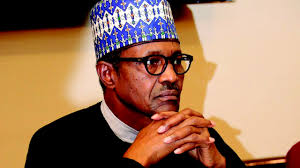Nigeria again scored 24 out of 100 points to rank 150 among 180 countries on the 2022 Corruption Perception Index (CPI) released on Tuesday by Transparency International (TI).
Though it maintained its 2021 score of 24/100, Nigeria moved up four places in ranking from 154 to 150, in the newly released index.
The CPI is used for measuring the level of corruption in the systems of the 180 countries across the world, based on certain prevalent indices.
Such indices include bribery, diversion of public funds, public officials using public office for private gain without consequences, ability of governments to contain corruption and enforce effective integrity mechanisms in the public sector.
Others are red tape and excessive bureaucratic burden which may increase opportunities for corruption, meritocratic versus nepotistic appointments in the civil service.
The maximum points a country can score is 100 points, and the least is zero. Zero signifies the worst score and 100 the best.
In a statement issued in Berlin, TI said the 2022 CPI shows that most of the world continues to fail to fight corruption, noting that 95% of countries have made little to no progress since 2017.
According to the Global Peace Index, the world continues to become a less peaceful place. There is a clear connection between this violence and corruption, with countries that score lowest in this index also scoring very low on the CPI.
Governments hampered by corruption lack the capacity to protect the people, while public discontent is more likely to turn into violence. This vicious cycle is impacting countries everywhere from South Sudan (13) to Brazil (38).
Corruption has made our world a more dangerous place. As governments have collectively failed to make progress against it, they fuel the current rise in violence and conflict – and endanger people everywhere.
A dangerous world
Chair of Transparency International, Delia Ferreira Rubio, said: “Corruption has made our world a more dangerous place. As governments have collectively failed to make progress against it, they fuel the current rise in violence and conflict – and endanger people everywhere.
“The only way out is for states to do the hard work, rooting out corruption at all levels to ensure governments work for all people, not just an elite few.”
Meanwhile, TI’s partner in Nigeria, the Civil Society Legislative Advocacy Centre (CISLAC), which released the report in Abuja, decried that there was no change in the country’s scores between 2021 and 2022.
CISLAC’s Executive Director, Auwal Musa, was quoted in a statement as saying that while the index does not show specific incidences of corruption, it indicates the perception of corruption in Nigeria.
“The index is impartial, objective and globally acknowledged as the most widely used cross-country parameter for measuring corruption,” he said.
Despite widespread corruption in the country, the Federal Government has continued to criticise reports that point to worsening corruption.
In the 2021 CPI it insisted that TI lacked the basis to rank Nigeria, even as President Muhammadu Buhari pardoned two former governors – Joshua Dariye of Plateau State, and Jolly Nyame of Taraba State in 2022, which was seen as a major setback to the country’s anti-corruption efforts.
Global highlights
Indeed, the CPI showed that more than two-thirds of the 180 countries assessed have a serious problem with corruption, scoring below 50.
Denmark led the pack as the least corrupt country with 90 points, followed by Finland and New Zealand both at 87 points.
Strong democratic institutions and regard for human rights also make these countries some of the most peaceful in the world according to the Global Peace Index.
In Sub-Saharan Africa, Seychelles continues to lead the region with 70 points, followed by Botswana and Cabo Verde, each with 60, while Burundi (17), Equatorial Guinea (17), South Sudan (13) and Somalia (12) performed the lowest.
The CPI notes that “Corruption, conflict and security are profoundly intertwined. The misuse, embezzlement or theft of public funds can deprive the very institutions in charge of protecting citizens, enforcing the rule of law and guarding the peace of the resources they need to fulfil that mandate.”
It added that “Criminal and terrorist groups are often aided by the complicity of corrupt public officials, law enforcement authorities, judges and politicians, which allows them to thrive and operate with impunity.”
It cited the Russian invasion of Ukraine in February 2022, as “a stark reminder of the threat that corruption and the absence of government accountability pose for global peace and security.”
It said that kleptocrats in Russia (28) have amassed great fortunes by pledging loyalty to President Vladimir Putin in exchange for profitable government contracts and protection of their economic interests,” a development many believe is a reflection of the Nigerian situation.


